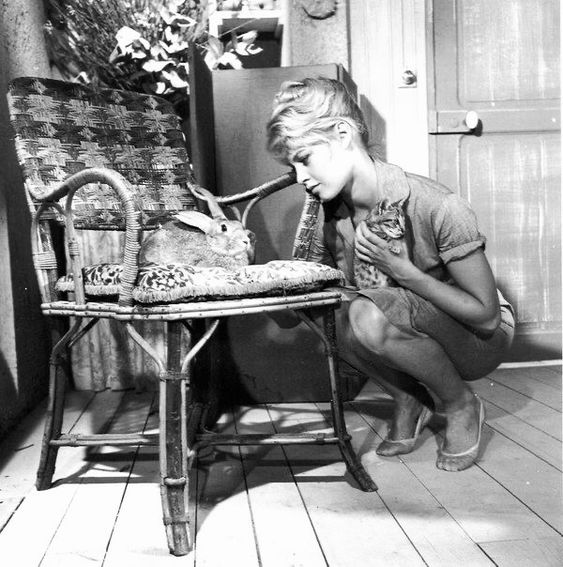
Neptune in the 5th House
 Neptune in the 5th house is more than an astrological placement, it’s a condition of the soul. It’s like being born with your heart already tuned to the frequency of dreamscapes, a fate that wraps your sense of self-expression in veils of wonder, longing, and otherworldly enchantment. This isn’t just creativity—it’s transcendence disguised as art, romance, and joy. You’re compelled, magnetized by unseen muses, the kind that show up in dreams or emerge when you’re staring too long at candlelight. There’s something ungraspable about your essence—people sense it. It’s in the way you smile like you’re remembering something beautiful from another life, in how you love with your whole being as if love itself were a divine calling rather than a casual pastime. Romantically, there’s an aching quality to this placement, a sweet melancholy that comes from constantly searching for something a little bit more real than reality allows. You’re drawn to love like moths to moonlight, but often what glows brightest in your eyes might be smoke and mirrors—mirages formed by your own idealism, projected onto partners who may not be equipped to carry the weight of your visions.
Neptune in the 5th house is more than an astrological placement, it’s a condition of the soul. It’s like being born with your heart already tuned to the frequency of dreamscapes, a fate that wraps your sense of self-expression in veils of wonder, longing, and otherworldly enchantment. This isn’t just creativity—it’s transcendence disguised as art, romance, and joy. You’re compelled, magnetized by unseen muses, the kind that show up in dreams or emerge when you’re staring too long at candlelight. There’s something ungraspable about your essence—people sense it. It’s in the way you smile like you’re remembering something beautiful from another life, in how you love with your whole being as if love itself were a divine calling rather than a casual pastime. Romantically, there’s an aching quality to this placement, a sweet melancholy that comes from constantly searching for something a little bit more real than reality allows. You’re drawn to love like moths to moonlight, but often what glows brightest in your eyes might be smoke and mirrors—mirages formed by your own idealism, projected onto partners who may not be equipped to carry the weight of your visions.
You fall in love with the potential of someone, the story of them, the imagined bond that feels preordained by cosmic forces. And when these illusions begin to crack—as they often do—it brings more than heartbreak; it’s a deep disillusionment with the divine itself. In art and performance, though, this same vulnerability becomes a gift. You can inhabit characters, stories, and melodies as dimensions to become. Your imagination is unbounded, fueled by a depth of feeling that can’t be taught. You bleed your soul into your creations. You become a vessel for forgotten voices. This ability to dissolve the ego and channel the unseen is your superpower, but it must be tempered, too. There’s a risk of becoming so absorbed in fantasy, in the comfort of reverie, that the mundane but necessary acts of grounded living get left behind.
When Neptune casts its magic across your 5th house, you enchant. You enter relationships expecting communion, transcendence, salvation even. Love, to you, is a metaphysical event. You want to be transformed by it, undone and remade by its fire. You don’t fall in love—you dive in, headfirst, heart-first, soul bared and breathless. Your romantic spirit is a siren song, wrapping around others like fog on the moor—beautiful, mysterious, and utterly irresistible. You might not even try to seduce, and yet people are drawn to you, sensing something deep and otherworldly behind your eyes. You speak in symbols, in silences, in songs—through art or affection, you express love in ways that bypass logic and strike straight at the soul.
But you carry within you a longing, an ache. You want love to be everything: healing, ecstatic, infinite. You want to lose yourself in it, to abandon the hard edges of reality and float in a divine union forever. It’s beautiful, this yearning—it gives your love a sense of otherworldliness most people only dream of. But it also makes you vulnerable to illusion, to chasing the reflection rather than the real. Sometimes, you find yourself loving the idea of someone more than the messy, human being they truly are.
You might paint a lover in starlight when they’re still very much flesh and bone. And when they disappoint you—and they will, because they’re human—you feel shattered, as if the dream itself has died. It’s Neptune’s lesson for you. To stay open to enchantment while remaining grounded—touched by its magic, but never consumed by it. To keep dreaming, but also to wake up enough to see who’s truly standing in front of you. To love without losing yourself, without slipping entirely into another world.
A Divine Purpose
With Neptune stationed in your 5th house, love, for you, must be soul-deep and storybook-worthy. Parenthood also embodies a divine purpose, a living expression of unconditional love. You might find yourself daydreaming about the kind of connection that exists in movies more than in suburbia. You crave a love so pure, so intuitive, so meant, that anything less feels like a dim imitation. And when you imagine children, it’s far more than nappies and night feeds—it’s angelic faces, a family life infused with wonder, beauty, and deep emotional resonance. But Neptune is a slippery character, cloaking everything in moonlight. And while these dreams are exquisite, they can also be traps.
When the person you love turns out to be fallible, and the family life you’ve built includes chaos, noise, and heartbreak rather than the serenity you imagined, the crash from dream to reality can be brutal. It’s as if your spirit has been betrayed, like the universe promised you something divine. You may carry a deep grief, shaped by the absence of what never came to be—the dream you once believed was within reach. It’s easy, then, to retreat, to romanticize the past or cling to the future, to idealize your children or your partners in ways that they can never quite live up to. You may find yourself giving endlessly, sacrificing your needs, trying to make reality fit the shape of your dream.
Your longing reveals your capacity for deep, divine love. The challenge is to bring your vision down to earth, to love the ideal and the real. To find enchantment in the spilled cereal, the awkward hugs, the partners who forget anniversaries but always come back with the shopping. Neptune in the 5th doesn’t mean your dreams are wrong. It means your dreams must be held lightly, with compassion for yourself and the people you love. You have to learn that sometimes the fairy tale isn’t in escaping the world—but in loving it as it is.
Loving the Unattainable
You’re drawn to the mysterious, the unavailable, the ones cloaked in complexity. The tortured artist. The emotionally unavailable dreamer. The one who lives an ocean away or is forever “not quite ready.” There’s something irresistible about the elusive, the enigma that keeps you guessing, the lover who arrives and disappears. And why? Because they mirror something within you—the ideal, the imagined, the divine possibility of what love could be if only everything aligned just right.
But here’s where it stings. This gravitational pull toward the unattainable often leaves you circling the drain. You may find yourself investing heart and soul into what-ifs and maybes, casting your affection onto a person more as a symbol than as a flawed, breathing human being. The real danger isn’t just heartbreak—it’s spiritual exhaustion, the ache of forever chasing a mirage. And the cruelest twist? Sometimes it isn’t the other person who’s unreachable—it’s you. Perhaps unconsciously, you’ve chosen someone who can’t meet you fully, because part of you fears what might happen if they did. If love became real, ordinary, vulnerable—would it still be as luminous?
There’s nothing wrong with dreaming, with loving deeply, with seeing the soul of another. In fact, it’s your power. But Neptune asks for balance. You must learn to pull the dream down into the dirt, let it grow roots, let it be messy and human. Every love doesn’t have to end in tragedy. Every connection doesn’t need pain to hold meaning.
Yet, this is also where the tale takes on its most poignant and redemptive hue. You see, the beauty of Neptune in the 5th is what happens when the dream breaks. When the illusion shatters. When you’re left amongst the wreckage of what you thought love or art or joy was supposed to be. It’s from this place of broken beauty that the true artist in you rises. Because Neptune comes to reveal. The trials you endure, the heartbreaks that feel like betrayal, the longing that stretches your spirit—they are all invitations. Through your sorrow, through the ache of what never was, you begin to understand what actually is. You come to see yourself as a vessel—one who can take the chaos, the confusion, the lost loves and unreachable desires, and alchemize them into something transcendent.
Art, under Neptune, is often born in the redemption of pain. It is the song you write after the goodbye. The painting you pour your grief into. The dance that makes sense of the silence. It’s communion. The muse doesn’t just visit you when the skies are clear. She comes after you’ve wept for a fantasy that didn’t come true. And through this process, something extraordinary happens. Creation becomes your medicine; love, your unfolding. You start seeing your gifts as tools to express the full spectrum of your humanity.
The Sensitive Child
The child you birth may carry a knowing — subtle, wordless, yet profound. You may find, almost from the start, that your child isn’t quite bound to this world in the usual way. Their eyes absorb. Their imagination is universe. They might speak in colors, dream in stories, and move through life with the intuition of someone who’s always got one foot in another realm. Artistic talents may blossom early as natural expressions of their inner world. This is a child with the potential to turn feeling into form. They connect with beauty because they are it. They feel music, art, and poetry as if these were languages they’ve spoken long before speech itself.
But with all this comes a fragility, too—a softness in the spirit that can make this world, with all its harsh lines feel like too much. The very sensitivity that allows your child to create also leaves them vulnerable. They may struggle with boundaries — between themselves and others, and between reality and fantasy. What’s real and what’s imagined can blur, particularly if the world around them doesn’t feel safe, seen, or steady. In the absence of grounding, they might seek escape from an overwhelming sense of not quite fitting in. Substances, screens, stories—they may all become portals, ways of retreating from a world that feels too cruel. This is where your presence becomes vital. To offer reality to their inner world — a stable harbor from which they can safely set out to explore the sea.
Encourage their art, honor their feelings, but also teach them the language of limits, the beauty of boundaries, the importance of discernment. Let them know that it’s okay to come back from the stars now and then, to sit, to breathe, to be. Help them anchor their dreams to something solid, something loving and consistent—your voice, your arms, your unwavering belief in their ability.
If you have this placement and you’re a parent, or you carry the potential to be, there’s often a heightened sensitivity around the theme of children. You may find yourself especially attuned to the wellbeing of your child, sensing their moods before they’ve even spoken. And sometimes this intuitive link reflects a child who is physically delicate—one whose body seems to mirror the softness of their soul. Such children may require more attentive care. Their physical vulnerabilities often walk hand in hand with spiritual gifts, which can make the parenting experience feel both special and terrifying—like holding a miracle wrapped in something fragile.
Neptune in the 5th can, in rare and tragic instances, signify the loss of a child. This isn’t to cast doom or inevitability, but to acknowledge that some charts carry symbols of great sorrow, of journeys that include griefs no words can fully contain. Should this be your path, it is a pain that reshapes the soul—a mourning that can’t be rushed, an absence that stays forever. But even in this unfathomable sorrow, Neptune invites you—however painfully—into the deeper mysteries of love. It calls forth a spiritual response as a way to survive. The loss of a child is not something to be understood or explained away. It is something to be held, honored, wept through.
Love and Sacrifice
Now we arrive at one of Neptune’s most quietly insidious enchantments—the sacrificial spell, the deep, aching compulsion to give of yourself until there’s scarcely anything left. When Neptune is in your 5th house, it can instill in you a kind of devotional surrender. You may feel as though your child’s wellbeing, their happiness, even their salvation, rests upon your shoulders. And so you give. And give. And give. You might sacrifice your own dreams to ensure theirs are realized. You may abandon your personal pleasures, your time, your financial stability—all in service to this bond. And while this impulse is born of love, of a heart that feels in technicolor, it can slowly twist into something more shadowed: a silent martyrdom. You begin to wear your sacrifices like invisible medals, feeling noble—but also unseen, underappreciated, emotionally depleted.
What’s more, Neptune blurs boundaries. What begins as selfless love can, without intention or awareness, drift into emotional enmeshment. You may come to rely on your child to reflect your worth, to provide comfort, to be the healer for wounds you perhaps haven’t yet named. And here’s where the dynamic gets delicate, even dangerous. The child, in sensing your unspoken needs, may try to become your emotional rock. But this is not their job. They are meant to be a child, not a therapist. And yet, Neptune doesn’t announce this imbalance with flashing signs. It unfolds subtly—through emotional disappointments, the unspoken sense that love must be earned through loyalty, through performance, through perfection.
If you carry Neptune in your 5th, you are already have profound love, limitless compassion, and a soul-deep desire to nurture. You don’t need to stop loving so fully—you simply need to love with clearer boundaries. Let your sacrifices be chosen. Let your children be loved, not idealized. And most importantly, let yourself receive the care and support you need, so you don’t look for it in the eyes of someone still learning to walk in the world. In doing so, you don’t just break the spell of martyrdom—you write a new myth. One where both you and your child are free.
A Redemption
Here is one of Neptune’s most quietly redemptive callings—when the longing of the heart finds its purpose in the act of giving love where it’s most needed. With Neptune in your 5th house, the traditional path of parenthood may not always unfold smoothly or as expected. There might be sorrow, struggle, or simply a deep inner knowing that biology isn’t the only—or even the most meaningful—way to become a parent. Neptune’s influence often symbolizes adoption as a soul’s mission. You may feel drawn to children who’ve been forgotten, displaced, or adrift—those who carry the weight of abandonment, confusion, or instability. You feel their ache as if it were your own. And in this recognition, you find your calling: to love them unconditionally.
Adopting—or even fostering or mentoring—can be a profoundly healing act for you. It allows your boundless empathy, your deep emotional well, to be poured into something real. Something that grows. Something that reflects back your love. But it doesn’t stop there. You may also feel drawn to work with children in other ways—not because you’re trying to “save” them, but because you understand them. Neptune makes you a shapeshifter of sorts, able to step into the imaginative theatre of childhood with ease. Your fluid sense of self allows you to meet them in their world, rather than trying to pull them into yours.
This makes you a powerful teacher, mentor, or guide—not in the formal, disciplinarian sense, but in the way where a child feels seen, heard, and valued. You become the grown-up they remember forever. The one who got them. The one who didn’t make them feel too weird, too sensitive, too much. And yet, Neptune’s boundlessness can sometimes blur lines. You’ll need to be mindful of not over-identifying with the children you care for, of not trying to relive your own childhood through theirs, or to heal wounds by proxy. Loving children—whether your own, adopted, or those you guide—should never come at the cost of your own inner child being ignored. Still, the gift here is profound. In caring for children, you find a channel for your vast emotional and spiritual reservoir. And in doing so, you remind the world that sometimes the most important role in a child’s life isn’t the one written by biology, but the one chosen by the heart. And how beautifully your heart chooses.



















 Moon Conjunct Pluto Synastry
Moon Conjunct Pluto Synastry
 Sun Square Pluto Synastry: You’ve Got That Power Over Me
Sun Square Pluto Synastry: You’ve Got That Power Over Me
 Venus-Pluto Synastry: A Love So Powerful That It Might Just Kill Them
Venus-Pluto Synastry: A Love So Powerful That It Might Just Kill Them
 Scorpio’s Cold Withdrawal
Scorpio’s Cold Withdrawal
 Mars Square Pluto Natal Aspect: The Unbreakable Spirit
Mars Square Pluto Natal Aspect: The Unbreakable Spirit
 Reflections on a Past Venus-Pluto Synastry Aspect
Reflections on a Past Venus-Pluto Synastry Aspect
 Mars-Pluto Synastry: Something Quite Dark and Dangerous
Mars-Pluto Synastry: Something Quite Dark and Dangerous
 Mercury Conjunct Venus Synastry
Mercury Conjunct Venus Synastry
 Uranus Transits 8th the House: Rebirth from Chaos
Uranus Transits 8th the House: Rebirth from Chaos
 Venus Trine Mars Synastry
Venus Trine Mars Synastry
 Mars in Aquarius: Sex drive
Mars in Aquarius: Sex drive
 Mars-Saturn Synastry: The Eternal Loop
Mars-Saturn Synastry: The Eternal Loop
 Venus Trine Pluto: Dark Desires
Venus Trine Pluto: Dark Desires
 Composite Sun in the 8th House: Weather the Storm
Composite Sun in the 8th House: Weather the Storm
 Mars Conjunct Pluto Synastry
Mars Conjunct Pluto Synastry
 Sun Conjunct Pluto Synastry: Enlightening or Annihilating
Sun Conjunct Pluto Synastry: Enlightening or Annihilating
 Sun Square Pluto Natal Aspect: I Am Titanium
Sun Square Pluto Natal Aspect: I Am Titanium
 Moon Opposite Uranus Natal Aspect
Moon Opposite Uranus Natal Aspect
 The Watery Gardeners: Cancer, Scorpio, and Pisces
The Watery Gardeners: Cancer, Scorpio, and Pisces
 Uranus Transits: 1st House: Winds of Change:
Uranus Transits: 1st House: Winds of Change: